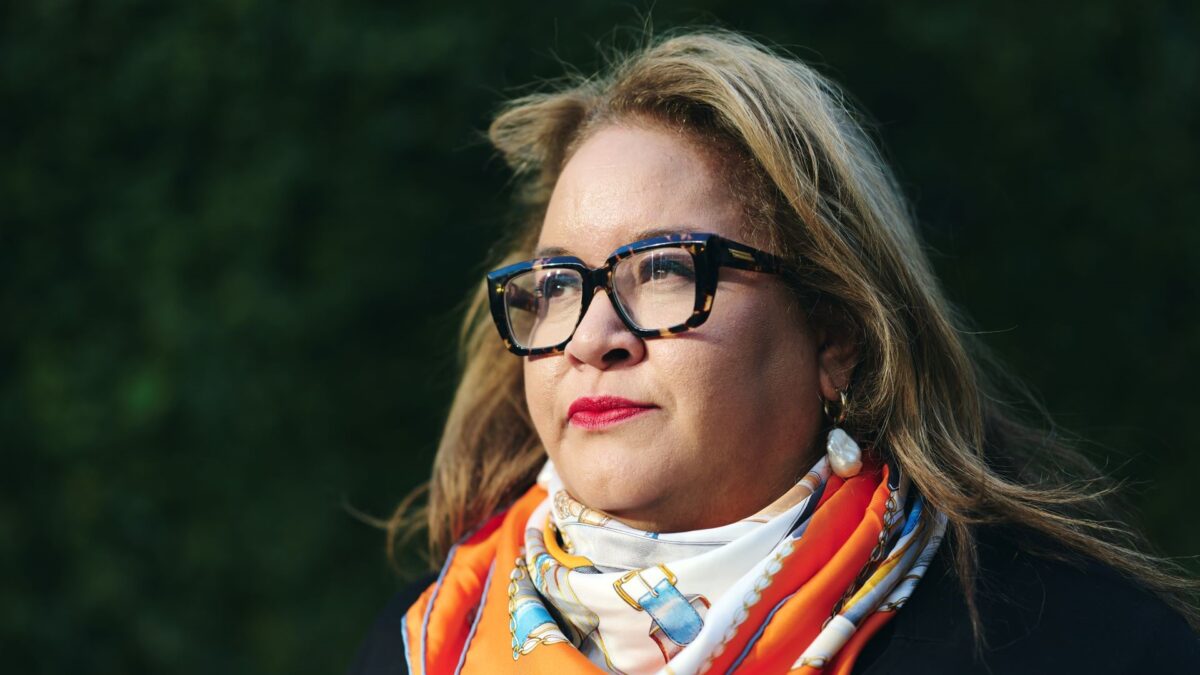Yes campaign leader Megan Davis: How reading Uluru Statement changes Voice critics’ minds


Professor Megan Davis says many people are unaware the Uluru Statement was an invitation to them, to walk with First Nations in a movement of the Australian people for a better future. (Image credit: The Uluru Dialogue)
Yes campaign leader Professor Megan Davis says the Uluru Statement from the Heart has the power to shift voters’ stance on the Voice.
Cobble Cobble woman Professor Megan Davis, Co-Chair of the Uluru Dialogue and Balnaves Chair in Constitutional Law at the University of New South Wales, said reading the Uluru Statement from the Heart to people who are still making up their mind about how they will vote can have a dramatic effect on their chosen position on the Voice.
“We are speaking to people in the city and in the country across the nation,” Professor Davis said.
“Many people are not aware of the Uluru Statement. Many haven’t heard of it before; they don’t know it was an invitation to them, to walk with us in a movement of the Australian people for a better future.
“They don’t know we issued the Uluru Statement as a hand of friendship, an olive branch and an expression of love.
“Once they hear or read the Statement, and they understand the extensive process that led to it through the Uluru Dialogues, they are much more open to it and supportive of a YES vote.
“We explain to Australians that we wanted to avoid politicians just taking the invitation and not acting on it, like the many calls for policy and structural changes that have come before.
“That’s why the Statement was issued to the Australian people, not the politicians, because First Nations Peoples have faith in their fellow Australians.
“Nonetheless, retail Australian politics has kicked in around the referendum and it’s confusing many Australians.
“The Voice has not come from Labor or other politicians. This was decided by many communities through extensive dialogues.
“So, when you read the Statement to Australians, and they understand the process; we are seeing them shift.

The Uluru Statement from the Heart painting on display at Hervey Bay in Queensland recently. (Image credit: Ben Fry)
“We see that in our focus groups and on the ground in the many town halls, community briefings and one on one conversations we are having across the country,” Professor Davis said.
The Uluru Statement from the Heart is a message which was issued to the wider Australian community following a meeting of hundreds of First Nations Peoples from all parts of Australia at Uluru on 26 May 2017.
It was not issued to politicians because of the failure of politicians to fix the many issues that face Aboriginal and Torres Strait Islander communities and to try to avoid the adversarial and ideological games played out in Canberra.
The First Nations Peoples at the Uluru National Convention were representatives from 12 local, grassroots dialogues held over three days which had been conducted in the 12 months prior at places like Dubbo, Cairns and Ross River to name just a few.
The purpose of those meetings was to discuss what, ideally, Constitutional Recognition of First Nations Peoples would look like to them if such a change was made to Australia’s most important document.
The Uluru Statement from the Heart was the delegates’ answer - which was they wanted a say, or a “Voice” to Parliament on government policies and laws which specifically impact upon their lives.
Their most powerful reasoning behind this was that First Nations Peoples’ life expectancy in Australia is on average eight years shorter than the rest of the country; First Nations Peoples are the most highly incarcerated people in the world; and that Indigenous health and education and living crises have become deeper over time.
It is important for the Voice to be enshrined in the Constitution because it protects it from being written out of existence by future governments.
Politicians cannot change the Australian Constitution; this can only be done by the public. A referendum is the only mechanism for changing the Australian Constitution.
